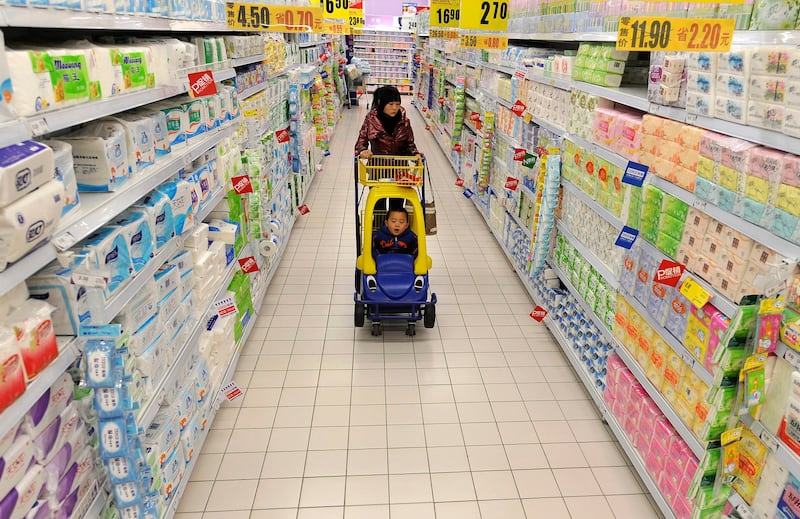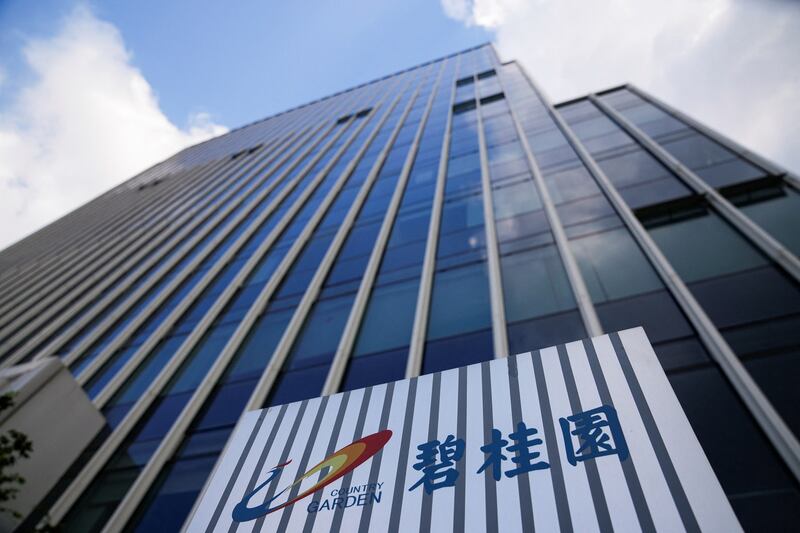The three pillars of China’s economic growth for July all performed worse than anticipated, figures released Tuesday showed – particularly bearing in mind that they reflect year-on-year growth from a locked-down and economically stagnant 2022.
The People’s Bank of China also unexpectedlycut the rate on its one-year MLF loans – medium-term lending facilities, or loans to other banks – by 15 basis points, the most since 2020, to 2.5% in a policy admission that the economy needs help.
The China statistics bureau, meanwhile, announced it would hold back all further age-specific unemployment numbers.
Youth unemployment – 16 to 24 – is statistically held to be ticking along at just over 20%, but anecdotally thought to be more like 40% to 50%. Nationwide unemployment for July reached 5.3%, marking a 0.1 percentage point increase from June, with age-specific unemployment data reporting suspended due to the need to enhance and optimize the survey system, according to the Chinese National Bureau of Statistics.
Retail sales of consumer goods grew by 2.5% in July, the slowest rate since December of the previous year and a deceleration from the 3.1% growth seen in June. It was the third consecutive month of slowdown.

Industrial output for enterprises with an annual turnover above a certain threshold grew by 3.7% in July year-on-year, down from the 4.4% growth seen in June.
National fixed-asset investment grew by 3.4% year-on-year in the first seven months of the year, a decrease from the 3.8% growth in the first six months. Total imports and exports of goods for July also decreased by 8.3% year-on-year.
Closely watched real estate data also took a further downturn. In the first seven months of the year, both national real estate development investment and sales area experienced greater declines. Development investment decreased by 8.5% year-on-year, while sales area saw a 6.5% decline year-on-year. Residential investment also dropped by 7.6% year-on-year.
The latest numbers appear to confirm what a host of China economy watchers have been chorusing in recent months: China’s expected consumption-led rebound – after months of brutal COVID-19 lockdowns that essentially quarantined the entire economy – hasn’t happened.
As The Economist pithily put it last week: "China's export boom is long over, Its property slump is not. And, therefore, deflation beckons."
The fear is – and it appears to be manifesting itself in recent economic events and announcements – that deflation, or a long run of falling prices that run the risk of sapping business profits, eroding consumer confidence and putting increasing numbers of people out of work, could become a vicious cycle
No relief in sight
The litany of bad economic news issuing out of China is far from limited to announcements by the National Bureau of Statistics.
China's largest property developer, Country Garden, is poised to default, its bonds trading at less than 10% of their face value, as it attempts to extend the maturity date on a U.S.$537 million payment due on Sept. 2. Meanwhile, state-backed developer Sino-Ocean conceded that it missed U.S.$20.94 million in interest payments on Monday.
Country Garden has four times as many projects as China Evergrande Group, the too-big-too-fail property developer that defaulted on its debts at the end of 2021.

Li Hengqing, an economist at the Information & Strategy Institute, a Washington-based think tank, told RFA Mandarin that the Chinese government was “powerless” in the face of Country Garden’s travails – and by extension those of China’s entire property sector, which accounts for some 25% of the country’s GDP.
“The Chinese government is now powerless, and their finances are exhausted,” said Li. “The Chinese government is still trying to figure out if it’s possible to retrieve the wealth that these private entrepreneurs have amassed over the past twenty or thirty years.”
As the core driver of China’s economic growth, the frequent defaults in the real estate sector have not only shaken investor confidence but also raised concerns within the Chinese government. The market is worried that Country Garden’s failure to pay bond interest as scheduled could have negative spillover effects on the entire real estate industry.
With the economy slowing down and consumer confidence waning, the Chinese government has adjusted its previously tightened property policies. However, observers believe that their focus is on stabilizing growth rather than rescuing real estate enterprises.
Qin Weiping, a U.S.-based economist, told RFA Mandarin that he believes that the Chinese government fundamentally has no intention to intervene.
“If the economic fundamentals are relatively good and it’s just a single company or a few companies facing operational issues, the Chinese government, especially the central government, has the capability to rescue them, even if the involved funds amount to trillions,” he said.
“But the problem in China is widespread – it’s not just Evergrande, Country Garden, or Zhongzhi Enterprise Group. Almost all companies behind them will encounter problems, and the government lacks the ability to save them.”
Et tu, banking sector?
Concerns around defaults within Zhongzhi Enterprise Group, China’s largest private financial holding conglomerate, are also considered by China economy watchers to be warning shots indicating broader pain to come.
Zhongzhi’s troubles are, at least in part, due to the real estate downturn.
The group’s China Credit Trust is conservatively estimated to have defaulted on U.S.$54.3 billion due to real estate investments.
Starting from Aug. 8, investors began receiving notifications of halted payouts for financial products, intensifying Zhongzhi’s credit crisis.
According to Chinese-language state media reports, the Chinese government’s “no speculation in housing” policy has led to the property sector’s loan channels being blocked. Companies under the Zhongzhi group, such as Zhongrong International Trust, have become new financing sources, but their partners have frequently defaulted, exacerbating the group’s predicament.
Qin Weiping told RFA Mandarin that products under the Zhongzhi group pursued high returns and therefore inherently bore high risks. From “a moral standpoint,” the Chinese government shouldn’t use taxpayer money to save high-net-worth clients’ investment losses, the economist said.
“In a severe economic downturn, no asset is safe. Even the money people have saved in the bank won’t be accessible when a series of debt crises and financial storms come crashing down. Banks will go bankrupt, and financial products people bought won’t have risk resilience,” he said. “It's like the saying ‘no egg survives in a broken nest.’”
With public opinion labeling the latest turns of events as China’s “Lehman Storm,” Qin said he believes that China’s long anticipated financial crisis has already erupted.
“The Chinese government might not be willing to admit this [because] if it declares a crisis, it could trigger even larger-scale panic, which wouldn’t be beneficial for their social management.”
Edited by Mike Firn and Taejun Kang.
